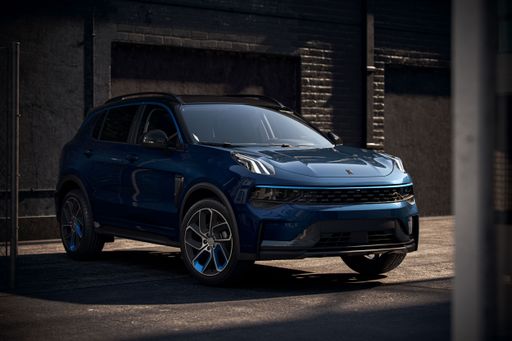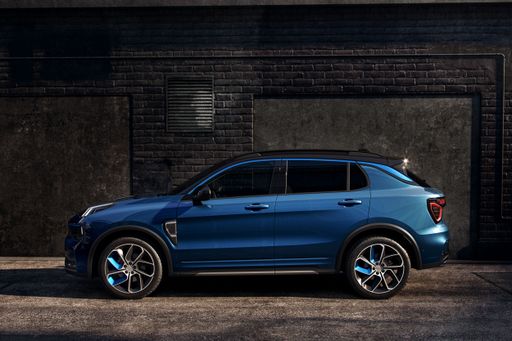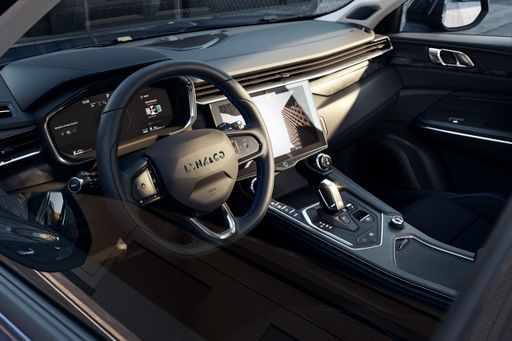Hyundai Kona vs Lynk & Co 01 - Differences and prices compared
Compare performance (218 HP vs 280 HP), boot space and price (23100 £ vs 36900 £ ) at a glance. Find out which car is the better choice for you – Hyundai Kona or Lynk & Co 01?
Costs and Efficiency:
Looking at overall running costs, both models reveal some interesting differences in everyday economy.
Hyundai Kona has a convincingly advantage in terms of price – it starts at 23100 £ , while the Lynk & Co 01 costs 36900 £ . That’s a price difference of around 13795 £.
Fuel consumption also shows a difference: Lynk & Co 01 manages with 0.90 L and is therefore decisively more efficient than the Hyundai Kona with 4.60 L. The difference is about 3.70 L per 100 km.
As for electric range, the Hyundai Kona performs significantly better – achieving up to 514 km, about 439 km more than the Lynk & Co 01.
Engine and Performance:
Power, torque and acceleration are the classic benchmarks for car enthusiasts – and here, some clear differences start to show.
When it comes to engine power, the Lynk & Co 01 has a clearly perceptible edge – offering 280 HP compared to 218 HP. That’s roughly 62 HP more horsepower.
In acceleration from 0 to 100 km/h, the Lynk & Co 01 is barely noticeable quicker – completing the sprint in 7.70 s, while the Hyundai Kona takes 7.80 s. That’s about 0.10 s faster.
There’s also a difference in torque: Lynk & Co 01 pulls significantly stronger with 535 Nm compared to 265 Nm. That’s about 270 Nm difference.
Space and Everyday Use:
Beyond pure performance, interior space and usability matter most in daily life. This is where you see which car is more practical and versatile.
Both vehicles offer seating for 5 people.
In curb weight, Hyundai Kona is convincingly lighter – 1370 kg compared to 1935 kg. The difference is around 565 kg.
Boot capacity is identical – both offer 466 L of storage.
When it comes to payload, Hyundai Kona slightly takes the win – 490 kg compared to 415 kg. That’s a difference of about 75 kg.
Who comes out on top?
Overall, the Lynk & Co 01 shows itself to be outperforms in nearly all aspects and secures the title of DriveDuel Champion.
It convinces with the more balanced overall package and proves to be the more versatile choice for everyday use.

Lynk & Co 01
Costs and Consumption
View detailed analysis
Engine and Performance
View detailed analysis
Dimensions and Body
View detailed analysis
Hyundai Kona
The Hyundai Kona wears its personality on the outside with bold styling and sprightly handling that turns city driving into something a little more fun than a commute. It blends practical space, modern tech and sensible running costs into a compact, stylish package — a smart pick if you want flair without paying luxury prices.
details



Lynk & Co 01
The Lynk & Co 01 marries bold, contemporary styling with a roomy, well-appointed cabin, striking a rare balance between fashionable flair and everyday practicality. With intuitive tech, flexible ownership ideas and a playful driving character, it’s the kind of crossover that turns heads at the lights and keeps owners grinning on the commute.
details


Costs and Consumption |
|
|---|---|
|
Price
23100 - 41600 £
|
Price
36900 - 40300 £
|
|
Consumption L/100km
4.6 - 7 L
|
Consumption L/100km
0.90 L
|
|
Consumption kWh/100km
14.6 - 16.8 kWh
|
Consumption kWh/100km
-
|
|
Electric Range
377 - 514 km
|
Electric Range
75 km
|
|
Battery Capacity
1.3 - 65.4 kWh
|
Battery Capacity
-
|
|
co2
0 - 163 g/km
|
co2
20 g/km
|
|
Fuel tank capacity
38 - 47 L
|
Fuel tank capacity
-
|
Dimensions and Body |
|
|---|---|
|
Body Type
SUV
|
Body Type
SUV
|
|
Seats
5
|
Seats
5
|
|
Doors
5
|
Doors
-
|
|
Curb weight
1370 - 1773 kg
|
Curb weight
1935 kg
|
|
Trunk capacity
466 L
|
Trunk capacity
466 L
|
|
Length
4350 - 4385 mm
|
Length
-
|
|
Width
1825 mm
|
Width
1860 mm
|
|
Height
1580 - 1585 mm
|
Height
-
|
|
Max trunk capacity
1300 L
|
Max trunk capacity
-
|
|
Payload
420 - 490 kg
|
Payload
415 kg
|
Engine and Performance |
|
|---|---|
|
Engine Type
Electric, Petrol, Full Hybrid
|
Engine Type
Plugin Hybrid
|
|
Transmission
Automatic, Manuel
|
Transmission
Automatic
|
|
Transmission Detail
Reduction Gearbox, Manual Gearbox, Dual-Clutch Automatic
|
Transmission Detail
Automatic Gearbox
|
|
Drive Type
Front-Wheel Drive, All-Wheel Drive
|
Drive Type
Front-Wheel Drive
|
|
Power HP
115 - 218 HP
|
Power HP
280 HP
|
|
Acceleration 0-100km/h
7.8 - 11.9 s
|
Acceleration 0-100km/h
7.70 s
|
|
Max Speed
162 - 210 km/h
|
Max Speed
-
|
|
Torque
200 - 265 Nm
|
Torque
535 Nm
|
|
Number of Cylinders
3 - 4
|
Number of Cylinders
4
|
|
Power kW
85 - 160 kW
|
Power kW
206 kW
|
|
Engine capacity
998 - 1598 cm3
|
Engine capacity
1499 cm3
|
General |
|
|---|---|
|
Model Year
2024 - 2025
|
Model Year
2024
|
|
CO2 Efficiency Class
A, D, C, E, F
|
CO2 Efficiency Class
B
|
|
Brand
Hyundai
|
Brand
Lynk & Co
|
Is the Hyundai Kona offered with different drivetrains?
Available configurations include Front-Wheel Drive or All-Wheel Drive.




